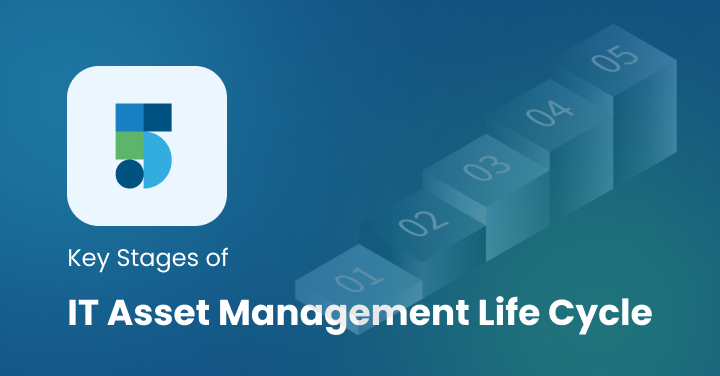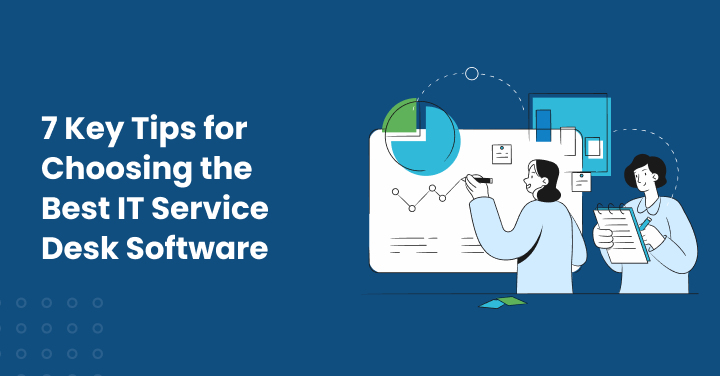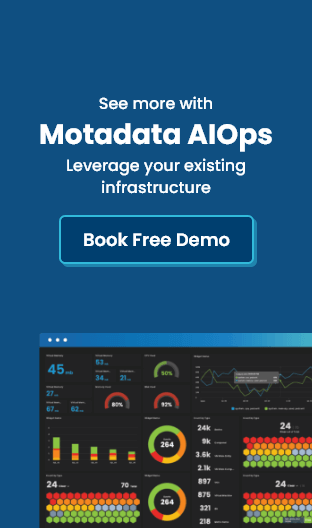Introduction
Artificial Intelligence-driven IT Service Management (AI-ITSM) is redefining how businesses manage IT services and support.
Unlike traditional methods that primarily focus on reactive problem-solving, AI-ITSM introduces automation, intelligence, and predictive capabilities into IT operations.
This shift is especially critical for marketing operations, which rely heavily on smooth technology infrastructure for campaigns, content management, digital platforms, and customer engagement tools.
In marketing, timing and precision are everything. A campaign launch delayed due to an IT system crash or a collaboration platform outage can affect brand perception, customer engagement, and revenue.
Efficient IT support ensures that marketing teams operate seamlessly, stay agile, and respond quickly to changes in customer demands.
AI-ITSM, by bringing speed, automation, and foresight, enables businesses to support marketing initiatives with unmatched reliability and efficiency.
This article explores how AI-ITSM empowers businesses to scale marketing operations by transforming IT support into a proactive, intelligent enabler of growth.
Understanding AI-ITSM
What is AI-ITSM in simple terms?
AI-ITSM refers to the use of artificial intelligence within IT Service Management frameworks. It integrates technologies like machine learning, automation, and predictive analytics into ITSM platforms, allowing IT teams to work smarter, not harder.
Instead of simply responding to issues, AI-ITSM identifies patterns, predicts problems, and automates repetitive processes.
How it differs from traditional ITSM
- Traditional ITSM: Focuses on reactive responses, manual ticket resolution, and rigid processes that slow down decision-making.
- AI-ITSM: Brings automation, proactive monitoring, and advanced analytics. It reduces manual work, offers instant support via chatbots, and ensures IT problems are addressed before they affect operations.
Key AI technologies used in ITSM
- Chatbots and Virtual Agents: Resolve common queries like password resets instantly.
- Predictive Analytics: Identify potential risks, such as server overloads, before they occur.
- Natural Language Processing (NLP): Simplifies user interactions with IT support by enabling human-like conversations.
- Automation Engines: Handle routine IT workflows like system access or software installation.
- Self-Healing Systems: Detect issues and fix them automatically without human intervention.
AI-ITSM turns IT support into a strategic partner for business functions like marketing, where agility and uptime are crucial.
Challenges Marketing Teams Face Without AI-ITSM
1. Delays in IT support affecting campaigns
Marketing campaigns often run on strict timelines. A delay in resolving IT issues—such as server downtime, email marketing tool errors, or CRM failures—can push campaign deadlines and reduce impact.
2. Manual ticket handling slowing down operations
When every IT request requires manual intervention, response times suffer. For marketing teams managing multiple digital platforms, waiting hours or days for IT support creates unnecessary bottlenecks.
3. Lack of insights into recurring IT issues
Without AI-powered analysis, recurring IT problems—like recurring downtime during peak campaign hours—remain unresolved. This reactive cycle disrupts continuity and drains productivity.
These challenges underline why modern marketing teams need AI-driven IT support to function efficiently and scale campaigns.
How AI-ITSM Helps Marketing Teams Scale
1. Faster response to IT requests
AI-ITSM platforms use chatbots and automation to provide immediate responses to routine IT issues. This ensures marketers get back to work faster instead of waiting for IT assistance.
2. Automated workflows for routine IT tasks
From setting up new marketing software to providing secure system access, AI-driven automation reduces reliance on manual interventions. Marketers gain efficiency by focusing on campaigns instead of waiting for IT support.
3. Predictive issue resolution before they impact marketing campaigns
Predictive monitoring tools identify risks such as potential server crashes or bandwidth shortages during live events. Proactive IT action prevents disruptions.
4. Better reporting and insights for decision-making
AI-powered dashboards provide insights into IT usage, incident trends, and resource bottlenecks. Marketing leaders can plan campaigns around IT performance data and ensure uninterrupted operations.
By combining automation, predictive analytics, and smarter workflows, AI-ITSM enables marketing teams to focus on creativity and growth rather than IT delays.
Real-World Examples / Use Cases
Example 1: AI-driven ticket resolution saving time
A global retail brand’s marketing team experienced frequent collaboration platform issues. By deploying an AI-ITSM solution, over 65% of support tickets were resolved automatically via chatbots. This reduced average ticket resolution time from hours to minutes, keeping marketing teams productive.
Example 2: Marketing campaign continuity ensured by predictive IT monitoring
A fintech company preparing for a product launch campaign used predictive monitoring tools within its ITSM software. The system flagged potential server overload risks days before the launch. IT took preventive action, ensuring zero downtime and uninterrupted customer engagement during the campaign.
These real-world examples demonstrate how AI-ITSM directly supports marketing operations, reducing risk and improving reliability.
Benefits Beyond IT Support
AI-ITSM offers advantages that go far beyond resolving IT tickets. It becomes a strategic enabler for the entire business, particularly marketing teams that depend on technology-driven workflows. When implemented effectively, AI-ITSM not only keeps systems running smoothly but also drives collaboration, productivity, cost savings, and long-term growth.
1. Improved collaboration between IT and marketing
Historically, IT and marketing have worked in silos, often leading to miscommunication and delays. AI-ITSM introduces real-time transparency by allowing marketing teams to track IT issue statuses through dashboards or notifications. This visibility eliminates guesswork and fosters a stronger partnership, ensuring that IT priorities align directly with marketing objectives.
2. Reduced downtime and increased productivity
For marketing teams, even a short period of downtime can derail campaigns or disrupt customer engagement. AI-ITSM’s proactive monitoring and self-healing systems minimize these risks. Issues are detected and resolved before they escalate, allowing marketers to focus on creativity and strategy rather than waiting for IT fixes.
3. Cost savings through automation
Automation within AI-ITSM significantly reduces the need for manual intervention in repetitive tasks like password resets, access requests, or system updates. This efficiency lowers operational costs, frees IT staff to focus on strategic initiatives, and ensures that marketing departments gain faster, more reliable support without inflating budgets.
4. Better decision-making with insights
AI-ITSM platforms provide advanced analytics that uncover patterns in IT usage and incident trends. Marketing leaders can leverage these insights to schedule campaigns around periods of high system reliability, allocate resources more effectively, and avoid recurring bottlenecks. Data-driven decision-making enhances both marketing performance and IT planning.
5. Faster onboarding for new employees
In fast-growing marketing teams, onboarding delays can hinder campaign momentum. AI-ITSM automates user provisioning, instantly granting new hires access to essential marketing tools, collaboration platforms, and data. This ensures new employees become productive contributors almost immediately, accelerating team scalability.
6. Enhanced customer experience
Customer-facing campaigns rely on stable digital platforms. AI-ITSM ensures uninterrupted services, so customers experience seamless interactions across websites, apps, and campaigns. By reducing disruptions, businesses strengthen trust, loyalty, and brand reputation.
7. Scalability for growing teams
As organizations expand across geographies and digital channels, their IT needs become more complex. AI-ITSM scales effortlessly to support larger teams and broader campaigns without straining IT resources. This flexibility is vital for businesses aiming to sustain growth.
8. Proactive risk management
Instead of reacting to crises, AI-ITSM predicts vulnerabilities and alerts teams before they impact marketing operations. Whether it’s a potential server overload or a security risk, proactive risk management safeguards campaigns and protects business continuity.
In short, AI-ITSM goes well beyond IT support. It enhances collaboration, reduces costs, improves agility, and ensures that marketing operations can scale confidently and securely.
Implementing AI-ITSM for Marketing Operations
Steps to integrate AI-ITSM into your business
- Assess Marketing Needs: Identify the IT challenges marketing teams face regularly.
- Select the Right ITSM Platform: Choose an AI-ITSM solution that offers scalability and integrates with existing tools.
- Automate High-Volume Workflows: Begin with repetitive tasks like password resets or software installations.
- Educate Teams: Train IT and marketing staff to use AI-driven tools effectively.
- Refine Continuously: Use analytics to optimize IT workflows for greater efficiency.
Common mistakes to avoid
- Lack of scalability: Selecting ITSM software that cannot grow with business needs.
- Over-reliance on automation: Not maintaining human oversight for complex IT scenarios.
- Neglecting user experience: Failing to design intuitive IT support systems for marketers.
Conclusion
AI-ITSM represents a transformative shift in IT support, turning it into a proactive enabler of marketing efficiency. By automating repetitive processes, predicting potential issues, and delivering actionable insights, AI-ITSM empowers businesses to scale marketing operations without disruption.
For marketing leaders, the benefits are clear: faster campaigns, fewer IT-related delays, enhanced customer experiences, and more productive teams. As marketing operations grow increasingly digital, the need for reliable IT support will only rise. Businesses that embrace AI-ITSM will gain a competitive edge, ensuring their marketing strategies are executed seamlessly and at scale.
In short, AI-ITSM is not just an IT investment—it’s a growth strategy for modern businesses.
FAQs:
AI-ITSM uses chatbots, automation, and self-service portals to resolve common IT issues instantly. This reduces dependency on human intervention and speeds up support.
Yes. AI-driven predictive analytics monitor IT systems continuously and flag potential risks. This allows IT teams to resolve issues before they disrupt campaigns.
No. AI-ITSM reduces workload by automating repetitive tasks. Even small IT teams can effectively support large-scale marketing operations using AI-ITSM.






